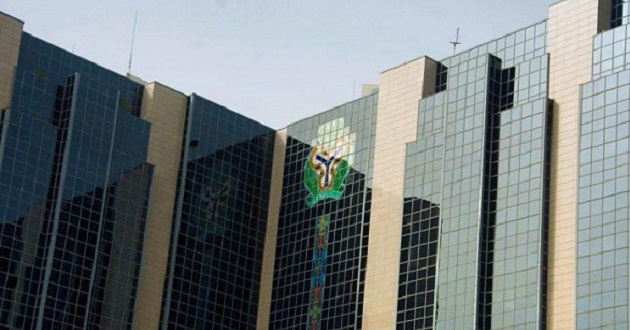Business
Banks’ profitability rises N310bn in 2018, NDIC report says

The Nigeria Deposit Insurance Corporation (NDIC) in its 2018 report released on Wednesday said the banking industry recorded 106 per cent increase in profitability to N310 billion in 2018 from N150 billion in 2017.
The annual report which indicated improvements in all the key performance indices of Deposit Money Banks in 2018, namely Capital Adequacy Ratio, Liquidity Ratio and Non-Performing Loan, NPL, ratio, added that the increase was driven by sharp decline in operating expenses which dropped by 25 per cent to N330 billion in 2018 from N440 billion in 2017.
‘’That could be attributed to a reduction in operating expenses by 25 percent from N440 billion in 2017 to N330 billion in 2018.
According to the report, the Yield on Earning Assets increased from 2.62 percent as at December 31, 2017 to 3.23 percent as at December 31, 2018.
Similarly, Return on Assets (ROA) rose to 0.88 percent as at December 31, 2018 from 0.48 per cent recorded as at December 31, 2017.
Also, Return on Equity (ROE) increased from 4.70 percent as at December 31, 2017 to 9.73 percent as at December 31, 2018.
The banking industry average Capital Adequacy Ratio (CAR) increased to 15.26 percent as at December 31, 2018 from 10.23 percent as at December 31, 2017, above the regulatory minimum of 10 percent and 15 percent for banks with national and international authorisation, respectively.
‘’The increase in CAR could be explained by the 44.88 percent increase in the total qualifying capital from N2.2 trillion in 2017 to N3.18 trillion in 2018 and complemented by the 2.89 percent decline in the Total Risk-Weighted Assets from N21.52 trillion in 2017 to N20.89 trillion in 2018.
The recapitalisation requirements declined from N1.57 trillion in 2017 to N704.88 billion as at December 31, 2018.
Read also: Economy records $15.15bn investment in six months, NIPC report says
“Total credit extended by the DMBs to the domestic economy amounted to N15.29 trillion in 2018, representing a 3.90 percent decrease from the N15.91 trillion recorded in 2017. Similarly, the industry non-performing loans, NPLs, decreased by 25.15 percent to N1.79 trillion in 2018 from N2.36 trillion in 2017.
‘’The banking industry was exposed to high credit risk as depicted by the high NPLs ratio of 11.70 percent as at December 31, 2018, though an improvement when compared with NPLs ratio of 14.84 percent recorded as at December 31, 2017.
‘’The industry NPLs ratio of 11.70 percent exceeded the maximum prudential threshold of 5 percent for DMBs.
“In the same vein, the NPLs to Shareholders’ Fund Ratio improved from 69.21 percent in 2017 to 57.50 percent in 2018.”
‘’The analysis of sectoral allocation of credit by DMBs shows that the sector with highest credit concentration in 2018 was the oil and gas.
“The level of DMBs exposure to the Oil & Gas Sector stood at N4.66 trillion or 30.46 percent of the industry total credits of N15.29 trillion as at December 31, 2018.
‘’The second in the level of exposure was the manufacturing sector with N2.25 trillion or 14.71 percent of total credits. That was followed by the government with N1.34 trillion or 8.78 percent of the total credits.
‘’While General Commerce accounted for N1.14 trillion or 7.44 percent of total credits, the Finance & Insurance and General sectors received 6.49 percent and 6 percent of total credit, respectively.”
Join the conversation
Support Ripples Nigeria, hold up solutions journalism
Balanced, fearless journalism driven by data comes at huge financial costs.
As a media platform, we hold leadership accountable and will not trade the right to press freedom and free speech for a piece of cake.
If you like what we do, and are ready to uphold solutions journalism, kindly donate to the Ripples Nigeria cause.
Your support would help to ensure that citizens and institutions continue to have free access to credible and reliable information for societal development.




















